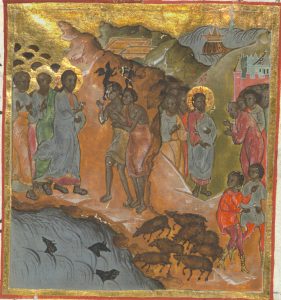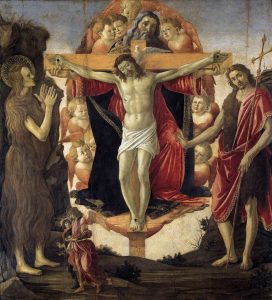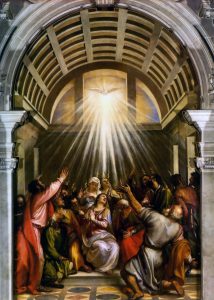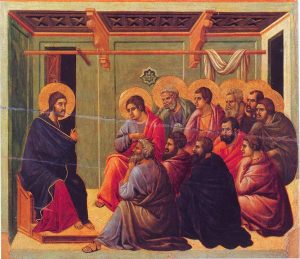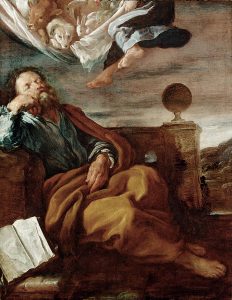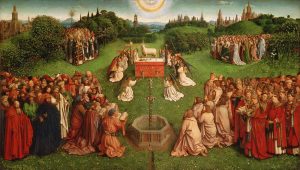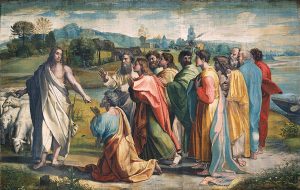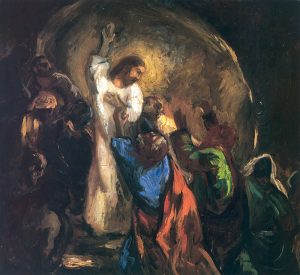Pentecost 3CIlluminations on the Lectionary readings for June 26, 2022 (Pentecost 3C)
First Reading (Track One): 2 Kings 2:1-2,6-14
Because Easter was relatively late this year, we dropped into the middle of the story of the prophet Elijah in the books of Kings.
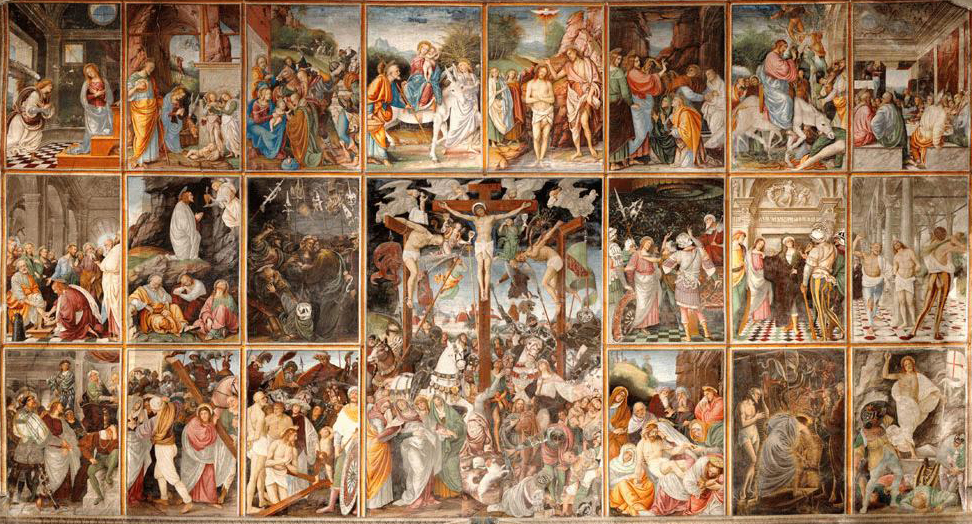
Stories of life and passion of Christ (1513), fresco by Gaudenzio Ferrari (c.1475-1546), Church of Santa Maria delle Grazie, Varallo Sesia, Italy. (Click image to enlarge.)
God chose Elijah to speak truth to King Ahab and his wife Jezebel, and to warn the kings who would follow them that disaster lay ahead. After fleeing the rulers’ anger for fear of his life – we heard about that in last week’s Track One first reading – we now look on as Elijah is taken up to heaven in a fiery chariot while his chosen successor, Elisha, and a crowd of fifty other prophets look on in amazement.
First Reading (Track Two): 1 Kings 19:15-16,19-21
The two Lectionary tracks almost converge this week, as Track Two gives us the passage that follows last week’s Track One first reading: The prophet Elijah, who had been chosen by God to speak truth to Israel’s kings and to warn them that disaster lay ahead, was despairing because he feared death at the hands of his foes. But God gave him strength and sent him on with instructions to choose Elisha as his successor. Elisha hesitates – foreshadowing the reluctant followers in Sunday’s Gospel – but then finds the will to come along.
Psalm (Track One): Psalm 77:1-2, 11-20
Stormy metaphors of dark clouds, thunder, lightning and pouring rain fill this Psalm with images of a God whose mighty deeds shout out great power and might. The Psalmist is troubled in the dark of the night. He cries out untiringly. He seeks comfort for his soul but refuses to accept it. But then he finds hope by reflecting on God’s power in the storm, remembering the way that God led the people out of slavery and protected them as they wandered in the desert.
Psalm (Track Two): Psalm 16
Almost exactly half of the 150 Psalms are attributed by tradition to King David, as is this one, titled “Song of Trust and Security in God” in the New Revised Standard Edition. The speaker, David or a later Psalmist writing in his name, calls out for God’s protection and guidance. Those who follow false gods will only increase their trouble, the poet sings. But by accepting God as his “portion and cup,” his heart will be glad and his spirit will rejoice, knowing that God will not abandon him to the grave.
Second Reading: Galatians 5:1,13-25
Having assured the Galatians in the verses we heard last week that we are all in one with Jesus, no longer Jew or Greek, slave or free, male or female, Paul urges all of us to stand firm in faith and to love our neighbors as ourselves. We are to use the freedom that God gives us not to “bite and devour” one another, Paul writes, but to accept the fruit of the Spirit in “love, joy, peace, patience, kindness, generosity, faithfulness, gentleness, and self-control.”
Gospel: Luke 9:51-62
From now through the end of the Pentecost season, we will follow Luke’s account of Jesus’ long journey from his home in Galilee toward Jerusalem, his passion, and the cross. As the journey begins, after they group has a quick encounter with an unfriendly Samaritan village, we are shown a side of Jesus that may surprise us with his seeming frustration and impatience. Is his command to come and follow him so urgent that disciples must leave the dead un-buried? Is there really no time for them to bid their families farewell? Once Jesus “set his face to go to Jerusalem,” it seems, everything now moves toward bringing in the Kingdom of God. Nothing else is more important than that.

